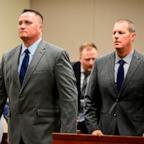Who's Counting? Bad Systems, Not Bad Medicine
— -- — Recently, the National Academy of Sciences distributed awell-publicized report stating that each year, between 40,000 and 100,000deaths in this country are a consequence of medical error.
After reading "ToErr Is Human," the report put out by the NAS’s Institute of Medicine, Iwas left with one dominant impression: the problem of medical error is notso much a medical problem as a systems problem, almost a quasi-mathematicalone.
I’m a mathematician, so you may suspect this conclusion is a result ofmy professional myopia, of my confusing an ankle for an angle perhaps. Let me explain.
People readily understand instances of a physician’sincompetence, a nurse’s negligence, a pharmacist’s lapse. These are allagents who are culpable, and making mistakes is in everyone’s realm ofexperience.
What’s much more difficult to grasp is a complex system withmany interacting parts that are tightly coupled and interdependent. Suchsystems are necessary in modern health care, but unless an impersonalanalysis of their structure is made, we likely won’t put a significant dentin the intolerably large number of medical errors or in the sickeninglyunnecessary deaths they lead to.
It is possible. Consider the airline industry whose safetyrecord is extraordinary and getting better. As has often been noted, aperson has one chance in 7 million of dying in any given flight with acommercial airliner in this country, and such deaths, befalling across-section of healthy Americans, are never overlooked by the media.
Accidents are rare and spectacular and, as the saying goes, pilots are thefirst to arrive at the scene.
In the health care industry, fatal accidents are common — occurring in from 1 in 200 to 1 to 400 visits toa hospital — are woefully underreported and happen to sick, isolatedindividuals and not to any of the medical staff.
The airline industry, of course, differs in countless ways fromthe health care industry. Medical outcomes often come in shades of gray, andthe questions of what constitutes an error and whether a death can beattributed to any given error are sometimes difficult to answer.




